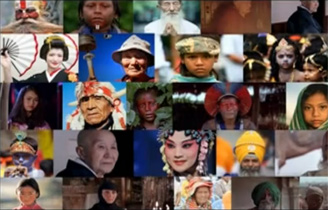Ethical Principles for Safeguarding Intangible Cultural Heritage
 |
Ethical Principles for Safeguarding Intangible Cultural Heritage.pdf |
The Ethical Principles for Safeguarding Intangible Cultural Heritage have been elaborated in the spirit of the 2003 Convention for the Safeguarding of the Intangible Cultural Heritage and existing international normative instruments protecting human rights and the rights of indigenous peoples. They represent a set of overarching aspirational principles that are widely accepted as constituting good practices for governments, organizations and individuals directly or indirectly affecting intangible cultural heritage in order to ensure its viability, thereby recognizing its contribution to peace and sustainable development. Complementary to the 2003 Convention for the Safeguarding of the Intangible Cultural Heritage, the Operational Directives for the Implementation of the Convention and national legislative frameworks, these Ethical Principles are intended to serve as basis for the development of specific codes of ethics and tools adapted to local and sectoral conditions.
1. Communities, groups and, where applicable, individuals should have the primary role in safeguarding their own intangible cultural heritage.
2. The right of communities, groups and, where applicable, individuals to continue the practices, representations, expressions, knowledge and skills necessary to ensure the viability of the intangible cultural heritage should be recognized and respected.
3. Mutual respect as well as a respect for and mutual appreciation of intangible cultural heritage, should prevail in interactions between States and between communities, groups and, where applicable, individuals.
4. All interactions with the communities, groups and, where applicable, individuals who create, safeguard, maintain and transmit intangible cultural heritage should be characterized by transparent collaboration, dialogue, negotiation and consultation, and contingent upon their free, prior, sustained and informed consent.
5. access of communities, groups and individuals to the instruments, objects, artefacts, cultural and natural spaces and places of memory whose existence is necessary for expressing the intangible cultural heritage should be ensured, including in situations of armed conflict. Customary practices governing access to intangible cultural heritage should be fully respected, even where these may limit broader public access.
6. Each community, group or individual should assess the value of its own intangible cultural heritage and this intangible cultural heritage should not be subject to external judgements of value or worth.
7. The communities, groups and individuals who create intangible cultural heritage should benefit from the protection of the moral and material interests resulting from such heritage, and particularly from its use, research, documentation, promotion or adaptation by members of the communities or others.
8. The dynamic and living nature of intangible cultural heritage should be continuously respected. Authenticity and exclusivity should not constitute concerns and obstacles in the safeguarding of intangible cultural heritage.
9. Communities, groups, local, national and transnational organizations and individuals should carefully assess the direct and indirect, short-term and long-term, potential and definitive impact of any action that may affect the viability of intangible cultural heritage or the communities who practise it.
10. Communities, groups and, where applicable, individuals should play a significant role in determining what constitutes threats to their intangible cultural heritage including the decontextualization, commodification and misrepresentation of it and in deciding how to prevent and mitigate such threats.
11. Cultural diversity and the identities of communities, groups and individuals should be fully respected. In the respect of values recognized by communities, groups and individuals and sensitivity to cultural norms, specific attention to gender equality, youth involvement and respect for ethnic identities should be included in the design and implementation of safeguarding measures.
12. The safeguarding of intangible cultural heritage is of general interest to humanity and should therefore be undertaken through cooperation among bilateral, sub regional, regional and international parties; nevertheless, communities, groups and, where applicable, individuals should never be alienated from their own intangible cultural heritage.
Address: 81, Laiguangying West Road, Chaoyang District, Beijing, China
Zip Code: 100021
Tel: 86-10-64966526
Fax: 86-10-64969281
E-mail: [email protected]
NEWSLETTER
Leave us your e-mail address, we'll let you know about current events.


